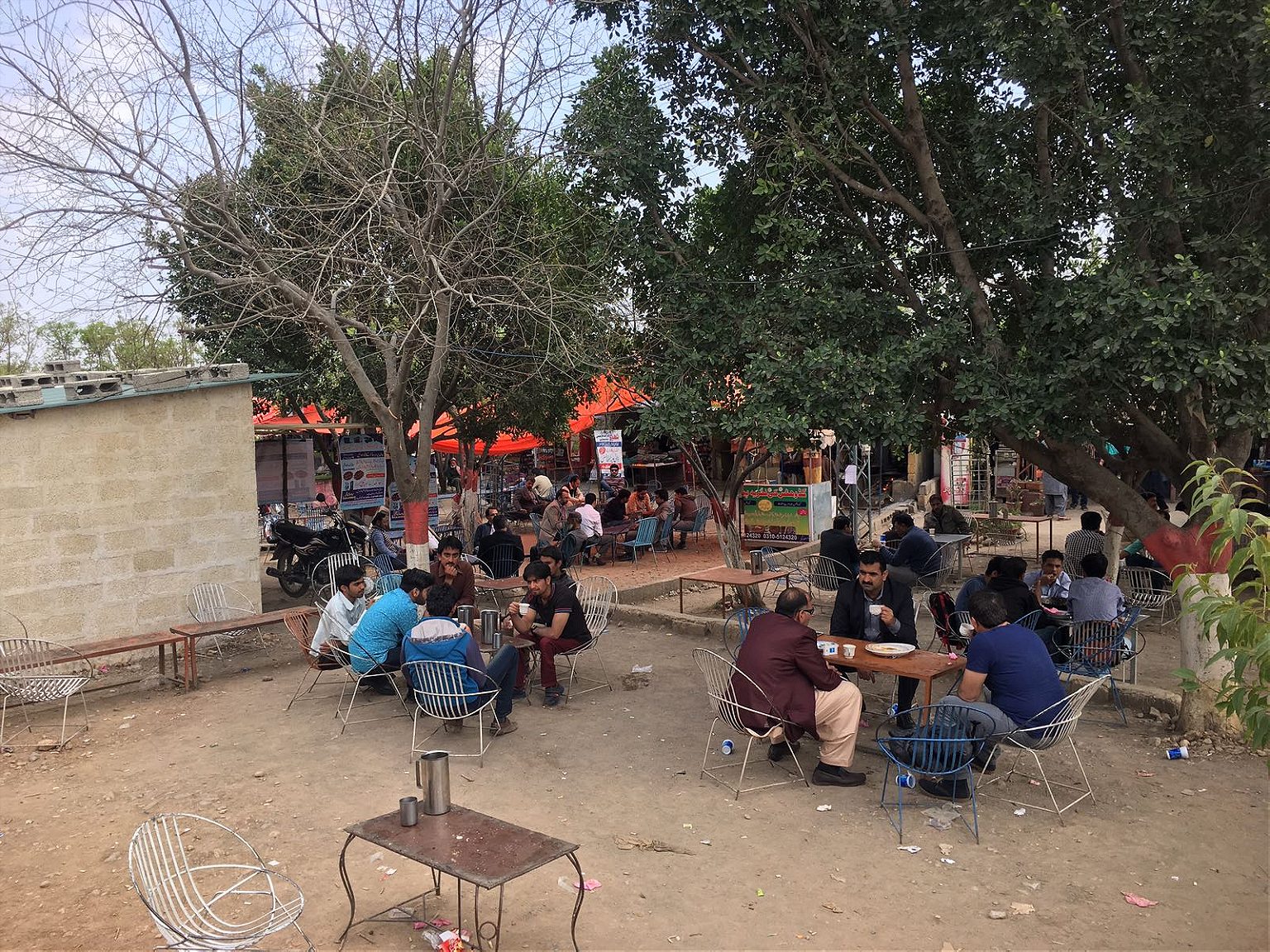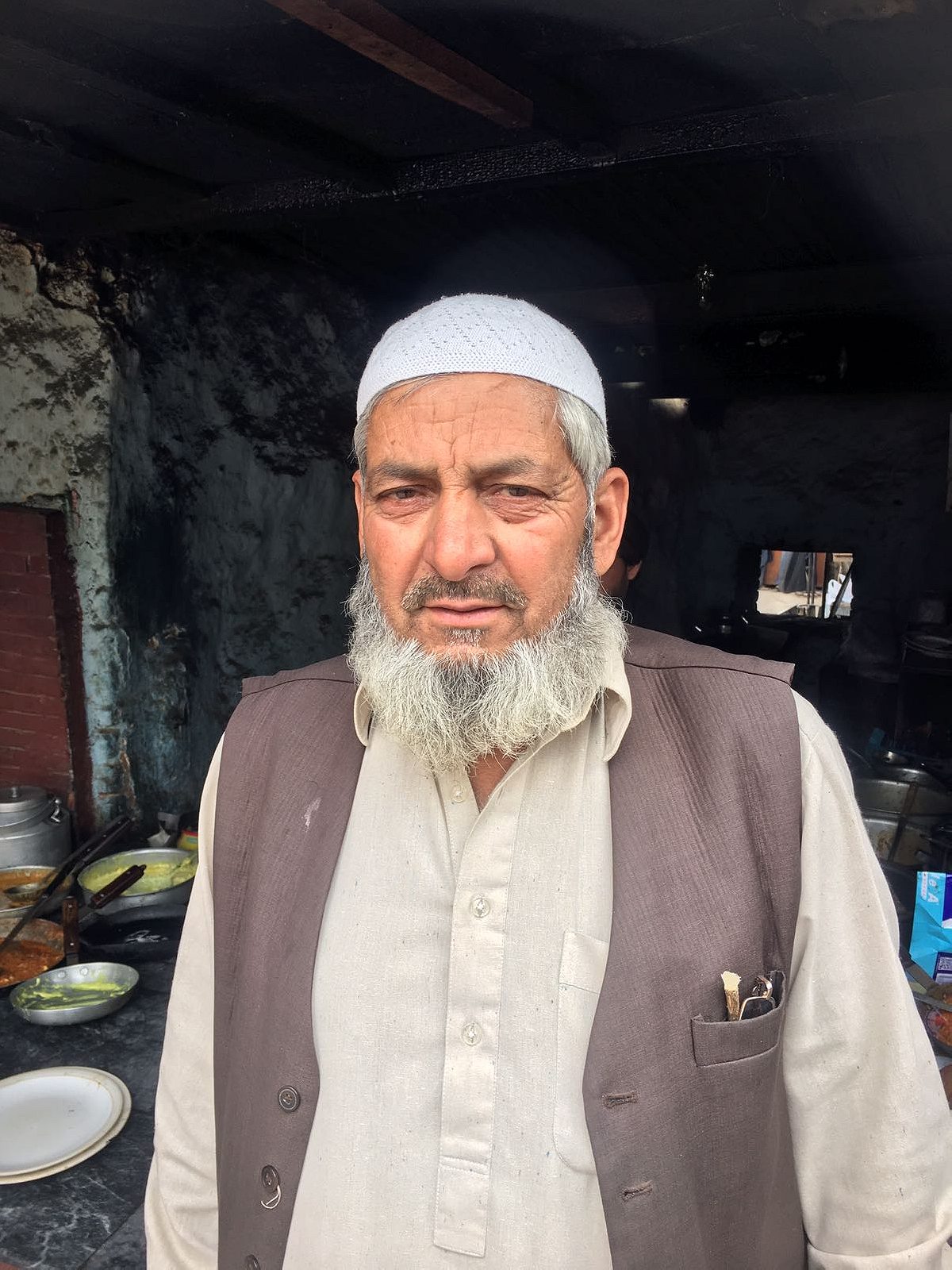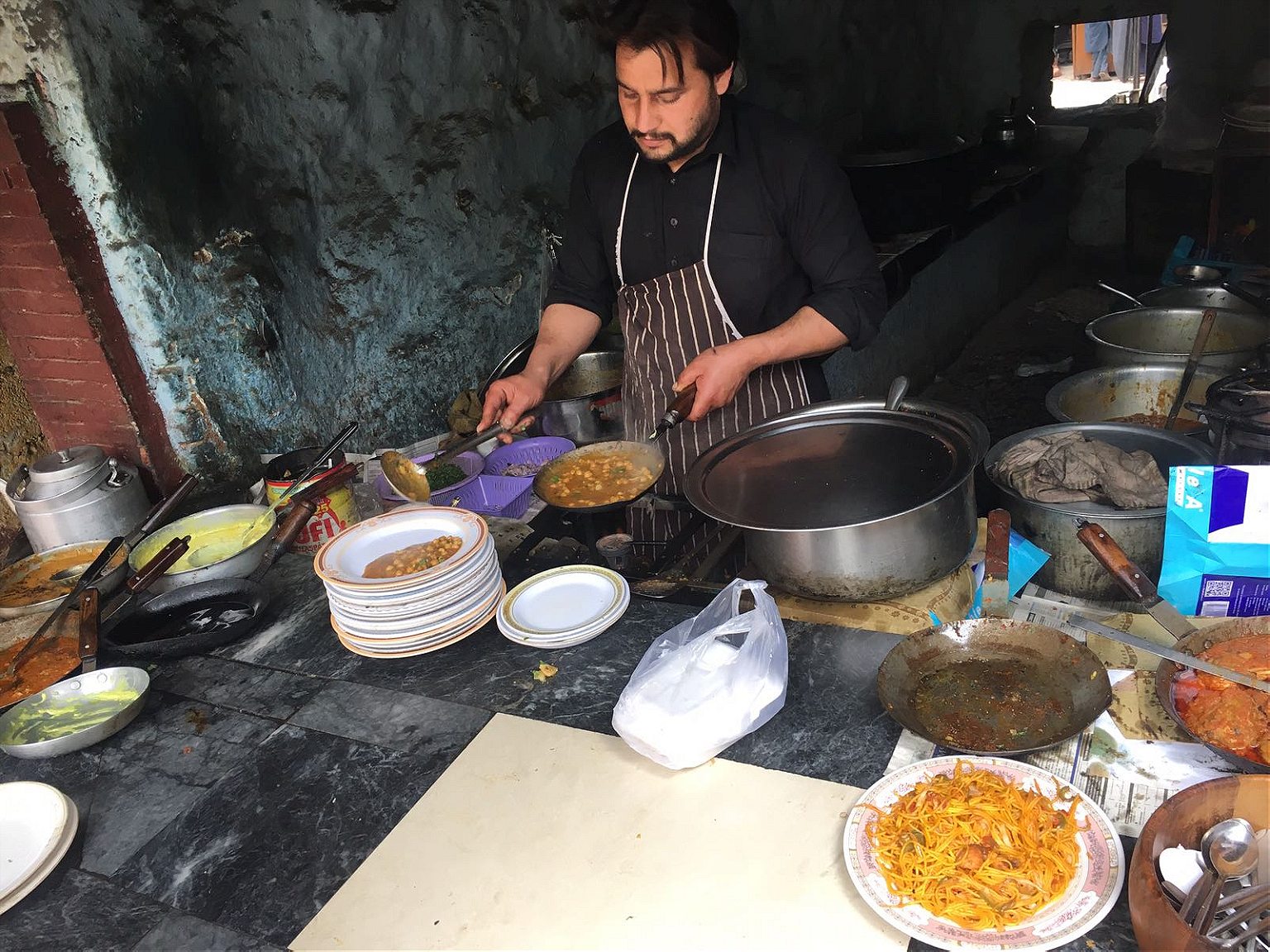From government bigwigs to poor students, Majeed’s (possibly illegal) restaurant is beloved by all.
The best meal in Islamabad will run you about a dollar. And no, this isn’t about purchasing power parity. At the Islamabad Marriott, there are pricey menu items that could put many New York restaurants to shame. That’s where you go to rub shoulders with bored expats and boring consultants discussing the merits of the CPEC. But for the best meal in the city, head to a roadside shack at the foot of the Margalla Hills, in the north of the city. Set aside two hours. Ask for a man named Majeed.
Majeed’s Hut is located in the heart of Quaid-i-Azam University, a research institution in the Pakistani capital consistently ranked as the best in the country. Its alumni include quite a few heavyweights. A former vice president of the World Bank, various cabinet members, and legions of diplomats and bureaucrats have all passed through the university, and, as a rite of passage, through Majeed’s Hut.
Along the main campus pathway, the Hut appears discreetly on the right. A few sad bushes partially curtain what is, really, an encroachment; Majeed does not own or rent the land. Past the mud-and-stone “entrance” is an outdoor arrangement of metal chairs, anchored by the tin-roofed kitchen. For anyone who knows their way around here, though, the best place for lunch is the backyard, where there is a little more privacy and a few more women. There was a time during my childhood trips with family to the college when Majeed’s was an exclusively male affair. Today, I see around ten women. We’re crawling towards equality.

The Hut’s owner, Majeed, has a voice so mellow you wonder how he orders around the restaurant staff. Wearing a neat waistcoat and the ubiquitous white Muslim prayer cap, he tells me that he began working at the Hut in 1975. Having graduated from high school a few years before, he was offered a job here by an acquaintance. He started as a tea-boy and waiter, slowly working his way up to the establishment that bears his name today, where the daily lunch is a 500-person affair.
“The early days were hard,” he tells me. “No electricity, no gas, no water. We’d be open for lunch, and once it got dark, that was it for the day.” Those were the days when my father was at the university as well, so I’ve heard the stories. Of the darkening evenings, the tiny room by the kitchen filling up with men huddled under shawls, cigarettes in hand, in the devious Islamabad cold that has a habit of sneaking up and chilling you to the bone.
The menu at Majeed’s is a photocopy of a handwritten list jotted down on notebook paper. Today’s offerings are mostly chicken. That’s typical for most mid-tier and budget restaurants in Islamabad. Beef has always been less popular, perhaps because of our pre-Partition Indian roots. We’re too far from the sea for fish. Pork = obvious no. That leaves us with the most banal of meats, with chefs around the city trying to put the most creative spin on the domesticated fowl.

The names of many dishes read like inside jokes, which they are. The menu drives home Majeed’s long history of serving the campus community. A special omelet with ground chicken—prepared in a hurry for a student running late to class—is named the Crisis. The Zalim, or “Destroyer,” is named after a tall, vociferous eater who has long since graduated. The Chicken Pervezi is named after Pervez Hoodbhoy, a nuclear physicist, renowned professor, and, evidently, a regular.
Majeed tells me all of this with the offhandedness of someone a bit used to celebrity. He has been interviewed several times, he tells me. His mild demeanor and warmth go hand in hand with the confidence that his restaurant is an integral part of the university’s culture and lore. He tells me of the time the authorities sent a notice threatening demolition the place, citing the encroachment as illegal. Soon after, a local newspaper ran an ominous headline—“University Culture in Danger.” Journalists crowded the Hut the next day, and Majeed served them a dish named Buffet; “It’s a little bit of everything,” he says. The restaurant was saved.
As the food starts arriving, Majeed goes to check on his kitchen. Some friends are joining me for lunch, and together we go through half the menu items. The daal and okra, despite being vegetarian, taste rich and powerful. The Chicken Pervezi is cooked in a tangy tomato sauce. The White Chicken Karahi is half a chicken served bone-in, bathed in cream and laden with peppercorn. My American husband, raised in the land of 12-ounce steak specials, scoffs at what passes as meat servings in Pakistan; bite-sized pieces of chicken swimming in gravy. But who thinks about that when the mouth is exploding with the flavor of a dozen spices, each of which announces itself with every bite?

It is not the flavors, however, that make Majeed’s Hut special. There are dozens of restaurants nearby offering the same medley of spices, but the food at Majeed’s is incomparably fresh. In a country that has whole-heartedly taken to microwaves and refrigeration, Majeed’s sons visit the market each morning to get supplies for the day, and that day alone. When they run out, the kitchen closes. The bread is brought to the table in steaming batches, watchful waiters circling nearby to see when the party starts breaking the last naan. The tea that follows is brewed over a wood fire, so that every sip is subtly flavored with smoke.
After the meal, I try to engage Majeed on a topic that is universally met with either reticence or an almost off-putting enthusiasm: “So, how are your finances?” Majeed doesn’t offer any figures on how much the restaurant makes, but he seems to be doing well for himself. His son, who recently completed a Master’s program from the university, chose to join his father in running the Hut. This must be an enterprise more lucrative than a white-collar job in the capital.
Majeed’s restaurant runs partially on an honor code. The menu doesn’t list prices. You order what you want and at the end you ask the waiter for the bill. The waiter then asks you what you got, because he obviously didn’t write it down. You tell him your order, he closes his eyes for a second, and then picks a number. No one knows the math. Everyone pays happily.
This system works, Majeed tells me, for the most part. Sometimes, people are not honest about what they ordered. Sometimes, they abuse the credit system. “Credit is king here; we are all for it. If you can’t pay today, pay tomorrow. No problem.” A few years ago, a man had lunch at the Hut but couldn’t pay at the time. He came later that night and handed the cobbler across the street an envelope for Majeed. It was a hundred dollars—far more than the price of his meal, but perhaps closer to its value.
At Majeed’s the broke student is served tea in the same chipped cup as the bureaucrat.
For Majeed, it’s important that his customers leave the Hut knowing they had a great meal. “If you make them happy, the money doesn’t matter. A satisfied customer doesn’t care what he pays.” I live in New York, a city whose upscale dining scene is firmly predicated on that statement, so I have to agree. With this attitude, Majeed has carved a unique place for himself: the university loves him, the lunch lines are long, and the cooks at the campus dining hall, when faced with student complaints about their food, drily respond that they can’t be expected to compete with Majeed’s wok.
It’s not just his wok they are competing against. Majeed has been able to create in Pakistan, a society rigidly divided along class lines, a space that nears the egalitarian. Islamabad’s class structure is particularly pernicious: million-dollar, old-money houses flanked by slums sheltering refugees of the Afghan wars. Your social status determines where you lunch. But not at Majeed’s, where the broke student is served tea in the same chipped cup as the bureaucrat. Many of the same bureaucrats might be members at the nearby Islamabad Club, a 350-acre ode to the exclusivity of the capital; no one would say the food’s better there.
As I finish my cup of tea, a soft breeze runs through the March air. I lean back and look around at the other customers. Every time I come to Majeed’s, I can always spot the alums. They look older, of course, but they are also the loudest. In their regular forays back here, they find a beloved haunt that has remained the same through the years. Through rambunctious laughter and lunches that bleed into early evenings, they find a part of themselves they had forgotten about. These were men and women (but mostly men) who might have attended QAU around the same time as my father. At the time, the university was a hotbed for politics: the most illustrious tyrant in the country’s history, Zia, was in power. The campus, like many other public universities, was a face-off between the government-backed Islamists and the idealists of the time. Much has changed since. But Majeed remains.
Top image: Han Myo Oo